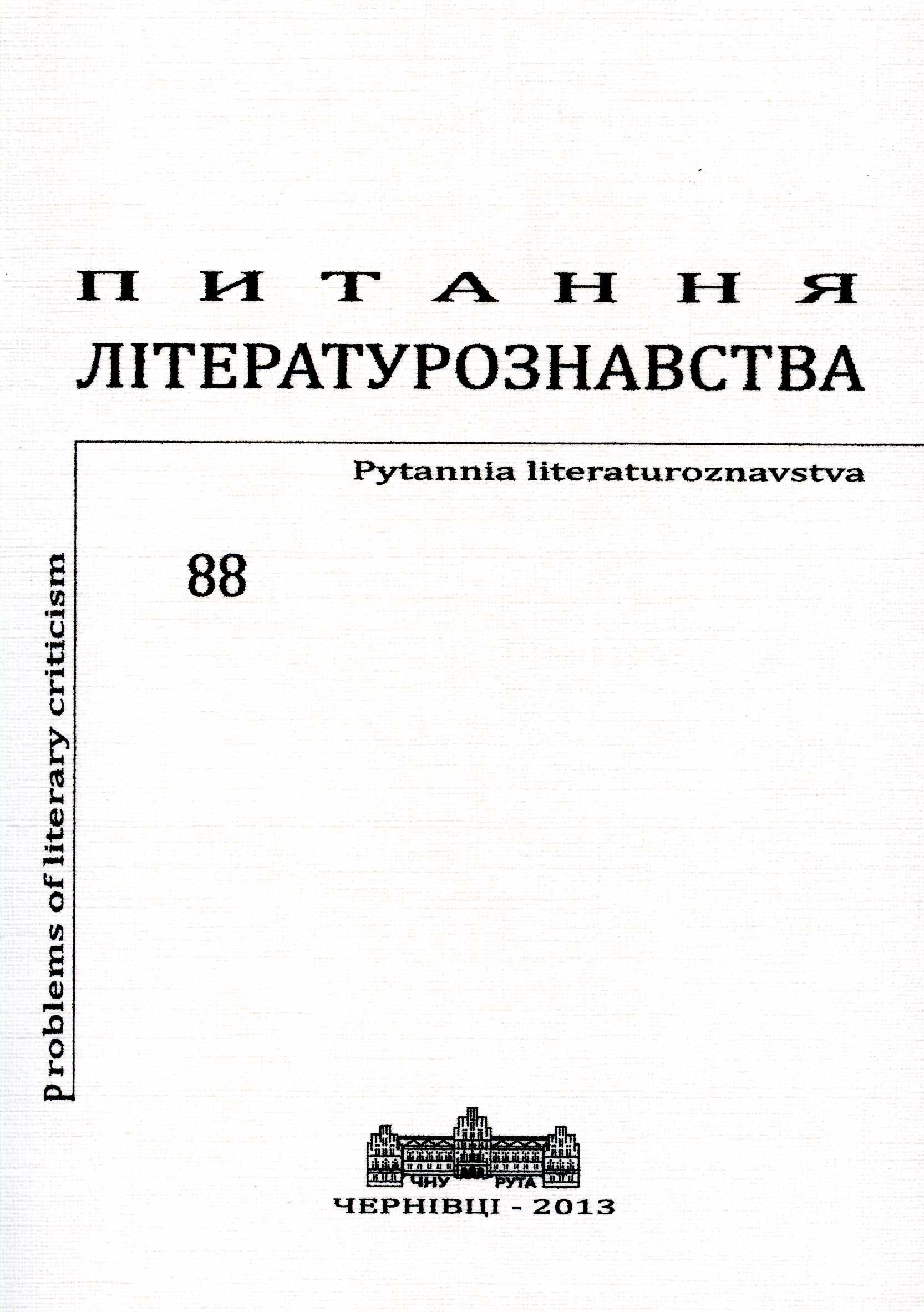Теоретико-художнє осмислення екзилю Юлією Крістевою
Theoretical and Methodological Comprehension of the Exile by Julia Kristeva
Author(s): Roman DzykSubject(s): Language and Literature Studies, Theory of Literature
Published by: Чернівецький національний університет імені Юрія Федьковича
Keywords: Julia Kristeva; strangeness; exile; emigration; “Murder in Byzantium”
Summary/Abstract: The creative work of Julia Kristeva the French author of the Bulgarian origin is investigated. She is perceived as an organic part of the French culture, but in France her status is not so unambiguous. Kristeva does not only accept her strangeness in the French language and culture, but also tries to comprehend it. The exile experiences of J. Brodsky, Cz. Milosz and Tz. Todorov have been analyzed as well. The methodology of investigation is based on the theoretical ideas of E. Said and J. Kristeva. Strangeness is examined on the ontological, epistemological and artistic levels. A novel “Murder in Byzantium” (“Meurtre à Byzance”, 2004) serves as an object of the investigation. This work deliberately uses the form of detective and even the police novel, skillfully combining it, like in “The Name of the Rose” by Umberto Eco, with the genre of the historical novel and playing with the narrative points of view. Special attention is focused on system of images, in particular on the images Stephanie Delacour and Sebastian Crest-Jones. In both cases the correspondence of their storylines with the author’s theoretical ideas is observed. The main features of immigrant status (alienation, loss of usual coordinate system, life in between two worlds, contrapuntal consciousness, the special role of memory and flashbacks) are singled out. It is proven that the text of the novel can be regarded as a kind of compensatory mechanism required directly by the author. The latter may be a key condition for an adequate perception of the whole novelistic structure.
Journal: Питання літературознавства
- Issue Year: 2013
- Issue No: 88
- Page Range: 69-88
- Page Count: 19
- Language: Ukrainian

